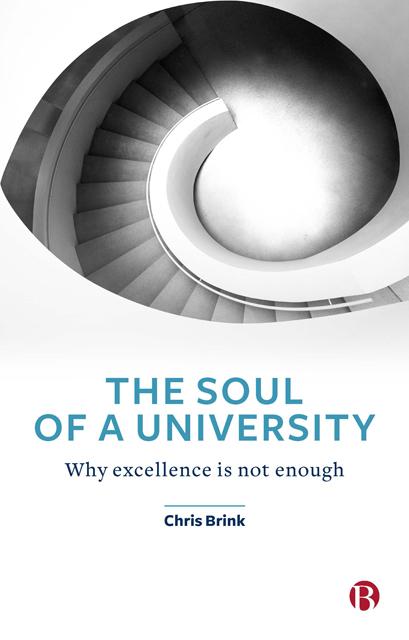Book contents
- Frontmatter
- Miscellenous Frontmatter
- Dedication
- Miscellenous Frontmatter
- Contents
- List of Illustrations
- List of Abbreviations
- Acknowledgements
- Prologue
- Introduction
- 1 The Standard Model University
- 2 Rankings and League Tables
- 3 Quality in Higher Education
- 4 Tales of Quality, Equality and Diversity
- 5 Rank Order of Worth
- 6 Linear Thinking
- 7 Another Dimension
- 8 Ideas of a Civic University
- Epilogue On the Supreme Good, by Boethius of Dacia
- Notes
- Index
2 - Rankings and League Tables
Published online by Cambridge University Press: 21 April 2023
- Frontmatter
- Miscellenous Frontmatter
- Dedication
- Miscellenous Frontmatter
- Contents
- List of Illustrations
- List of Abbreviations
- Acknowledgements
- Prologue
- Introduction
- 1 The Standard Model University
- 2 Rankings and League Tables
- 3 Quality in Higher Education
- 4 Tales of Quality, Equality and Diversity
- 5 Rank Order of Worth
- 6 Linear Thinking
- 7 Another Dimension
- 8 Ideas of a Civic University
- Epilogue On the Supreme Good, by Boethius of Dacia
- Notes
- Index
Summary
The rise of the rankers
The modern curse of bogus quantification.
John Kay
In 2003, the Institute of Higher Education at the Shanghai Jiao Tong University in China published a list of what it considered to be the top 500 universities in the world. The next year a London magazine called the Times Higher Education Supplement published its own list of what it viewed as the top 200 universities in the world. Neither list was given alphabetically, or clustered into sectors or bands. Each was a numerical ranking of universities in presumed order of quality: best in the world, 2nd best in the world, 3rd best, and so on, right down to 200th best or 500th best in the world.
These endeavours met with astounding success. No scepticism greeted the idea that such a list represents some kind of objective reality. On the contrary, it soon became common practice to talk about the list of top universities in the world. Both lists have, since their inception, been updated annually. Journalists have found this a fruitful topic: who’s up, who’s down, why are they up or down, and what does that say about the state of higher education? Universities started taking note, because prospective students (and their parents) had started taking note. Football clubs are ranked in league tables, so why not universities? Then politicians started to take note. It was not long before national pride was awakened. In somewhat the same way as countries compete in the medals table at the Olympics, the idea took root that countries compete for pre-eminence in ‘the world ranking of universities’.
This phenomenon impacts on our views of what universities are for. It also impacts on our understanding of quality. It not only affects the way society sees universities, but also how universities see themselves.
The first thing to understand is that there is no such thing as the world ranking of universities. Within a decade or so of university rankings first arising there were lots of them. Potentially there are infinitely many. Besides the Shanghai Jiao Tong index and the Times Higher ranking, another early ranking was the Quacquarelli Symonds ranking, generally known as QS. Quacquarelli Symonds is an educational company specialising in study-abroad programmes, founded in the 1990s by Mr Quacquarelli.
- Type
- Chapter
- Information
- The Soul of a UniversityWhy Excellence Is Not Enough, pp. 55 - 100Publisher: Bristol University PressPrint publication year: 2018



